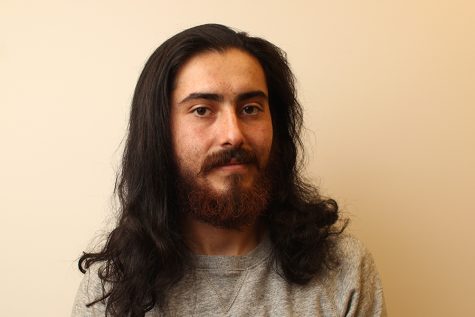United Faculty vote to reduce semester span
Feb 1, 2017
The decision to compress the semester from an 18-week semester to a 16-week schedule moves forward as United Faculty members vote online to approve the tentative agreement opened on Monday.
District Administrative Services Executive Vice Chancellor Eugene Huff said if UF members ratify the online vote, ending on Feb. 9, then a two-week reduction to the semester length would be slated for a 2018 fall semester implementation.
“There are various benefits to the switch,” Huff said. “It would give us time to hold a winter intersession. With 16 weeks instead of 18, we trim off 10 days and it gives us two weeks to play around with so we can offer more courses.”
District Communications and Community Relations Director Tim Leong said while he is also confident the agreement will pass, that does not mean there is not a lot of work still needed to be completed in terms of adjusting course sections, labs and other scheduling issues that may arise.
Huff said, “For many science professors, their course structure is defined by the science lab blocks and how long they run. So we may have to go back and work with departments and administrators to tweak the schedule.”
UF Executive Director Jeffery Michels said the tentative agreement negotiated with the district in December 2016 deals with compensation for part-time, and full-time faculty.
According to the agreement, it would implement a one-time off schedule compensation of about 2.5 percent of the base pay of the 2017 spring semester, and create changes to banked load that would give faculty who retire this year up to a $20,000 bonus.
“For a lot of people a bonus is enough justification for approving this agreement,” Michels said. “Even if it is a small one-time bonus, it was included to compensate for the work required with switching over courses to a reduced semester.”
According to the UF Table Talk weekly newsletter issued Thursday, this bonus will also pay for professors to the district’s new online learning management system — Canvas.
Contra Costa College President Mojdeh Mehdizadeh said the agreement also sets minimum hours a week for counselors and librarians but more discussions with department chairpersons and division deans are needed to resolve scheduling issues particularly for the sciences and nursing departments.
“Science and nursing faculty will have the hardest time adjusting to the change,” Mehdizadeh said. “But the positive side we are not the first college to do this and can look to them for examples.”
Huff said discussions about moving from an 18-week semester to a 16-week schedule have been simmering at the district for about a decade, but it was tabled for a variety of reasons.
“In the last two years it has come up again,” he said.
“But this time with a higher level of interest. This is what we were missing when the district was contemplating the decision in the past.”
Michels said the district reached out to various colleges throughout the state and invited speakers who have experienced a switch first hand to its campuses for workshops.
“Last year the Academic Senate worked with administrators and professors from other community colleges to work within the framework of a compressed calendar,” he said.
“On the UF website we have uploaded videos of speakers from these colleges explaining the benefits of the switch.”
But Leong said before they can work out the final issues with the scheduling, the agreement must go through the Chancellor’s Office for approval.
“Business takes a lot of time there,” he said. “It is a formality, but we still have a lot more time and resources to make all changes necessary to prepare for a 16-week calendar. “It would be very surprising for this be delayed any further, especially considering this been a topic of discussion for quite a while.
Mehdizadeh said she was part of the district task force created in 2006 that began researching benefits to a compressed calendar.
“There was interest,” Mehdizadeh said. “But at the time we were not ready to make a move for each constituency group review and provide feedback so we did not have consensus across board.”
Now, she said the district Research Office has looked at data from other institutions who have converted to comp calendar and shared those finding with constituency groups throughout the district as it nears a tangible switch to promote student success.
“All the research I’ve looked at shows that it is beneficial for students,” Mehdizadeh said, “The condensed time period provides an opportunity for students to focus in a slightly shortened time period.
“You don’t get sense of getting tired over lengthier time frame. Success rates look better for students who are on compressed calendars schedules in comparison to 18-week schedules.”
She said considering where the district was in 2006 in terms of being prepared to provide its community a smooth transition, now is the appropriate time accept change.
“A decision is coming up pretty soon,” Leong said. “Given the fact we are anticipating a 2018 fall semester implementation date for this tentative agreement on the compressed calendar.
“I cannot fathom that we will not be talking about this at a Governing Board meeting within this semester.”
CCC history professor Manu Ampim and Michels both agree that the transition from a longer semester to a shorter one will benefit students and needs to be approved as soon as possible.
“The compressed calendar is going to help a vast number of students who find the 18-week semester too long,” Ampim said. “I am 100 percent convinced the majority will be helped by it.”


